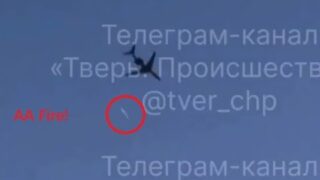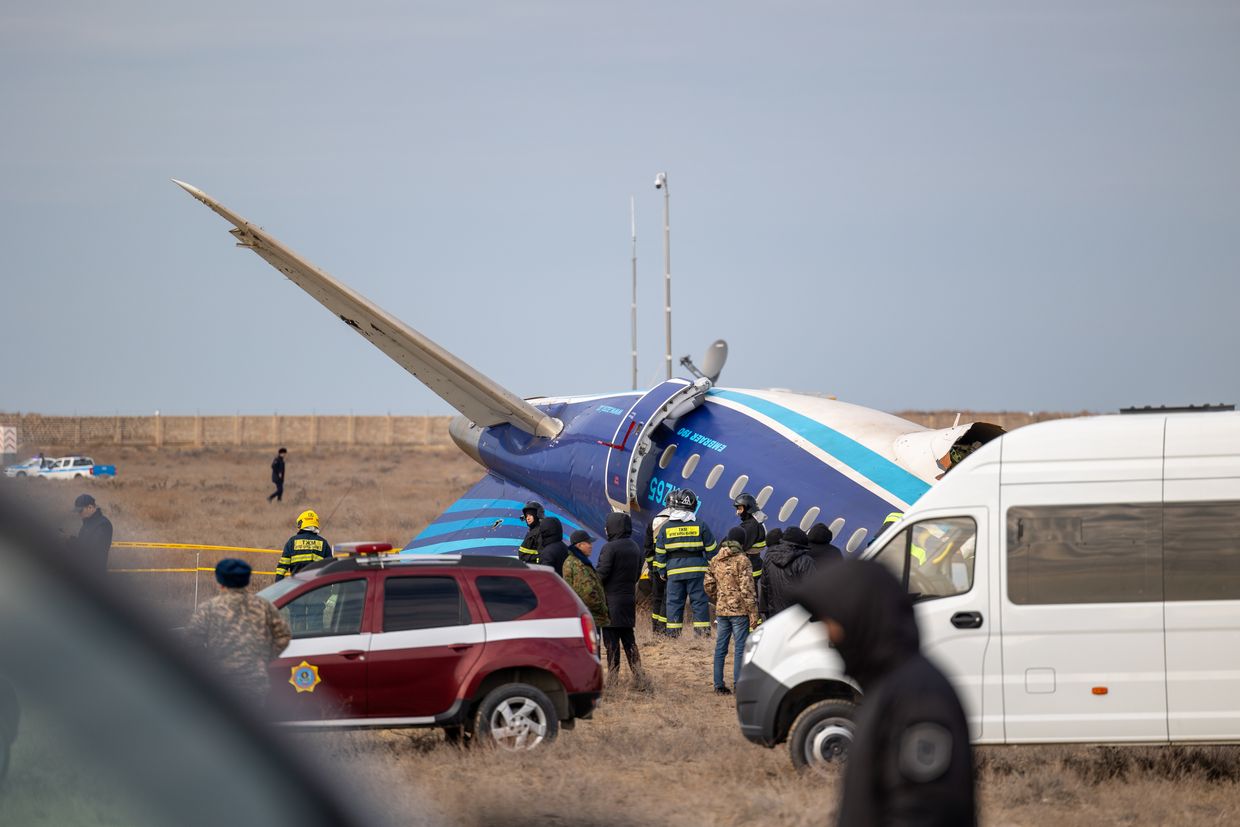
Azerbaijan Airlines crash highlights Russia's failure to close airspace amid war
The Dec. 25 Azerbaijan Airlines plane crash, likely caused by Russian air defense, shines light on a glaring issue the Kremlin has long swept under the rug.
By unleashing its war against Ukraine, Russia has made its airspace a dangerous place.
While Ukraine banned civilian flights over its territory hours before the beginning of Russia's full-scale invasion in 2022, Russia has limited itself to banning civilian flights over regions bordering Ukraine, as well as some regions not far from the Ukrainian border.
Flights over the rest of Russian territory, including Moscow and St. Petersburg, are still allowed despite regular Ukrainian drone attacks deep into Russia. Airports in cities far from the Ukrainian border have faced only temporary restrictions.
"It's completely irresponsible that Russia's airspace is still open and that airlines continue to fly into them as part of routine flights."
"In my view, it's completely irresponsible that Russia's airspace is still open and that airlines continue to fly into them as part of routine flights," Fabian Hoffman, a defense policy expert at the Oslo Nuclear Project, told the Kyiv Independent. "Russia's airspace is an active war zone, similar to Ukraine's airspace. Any civilian flights should cease immediately."
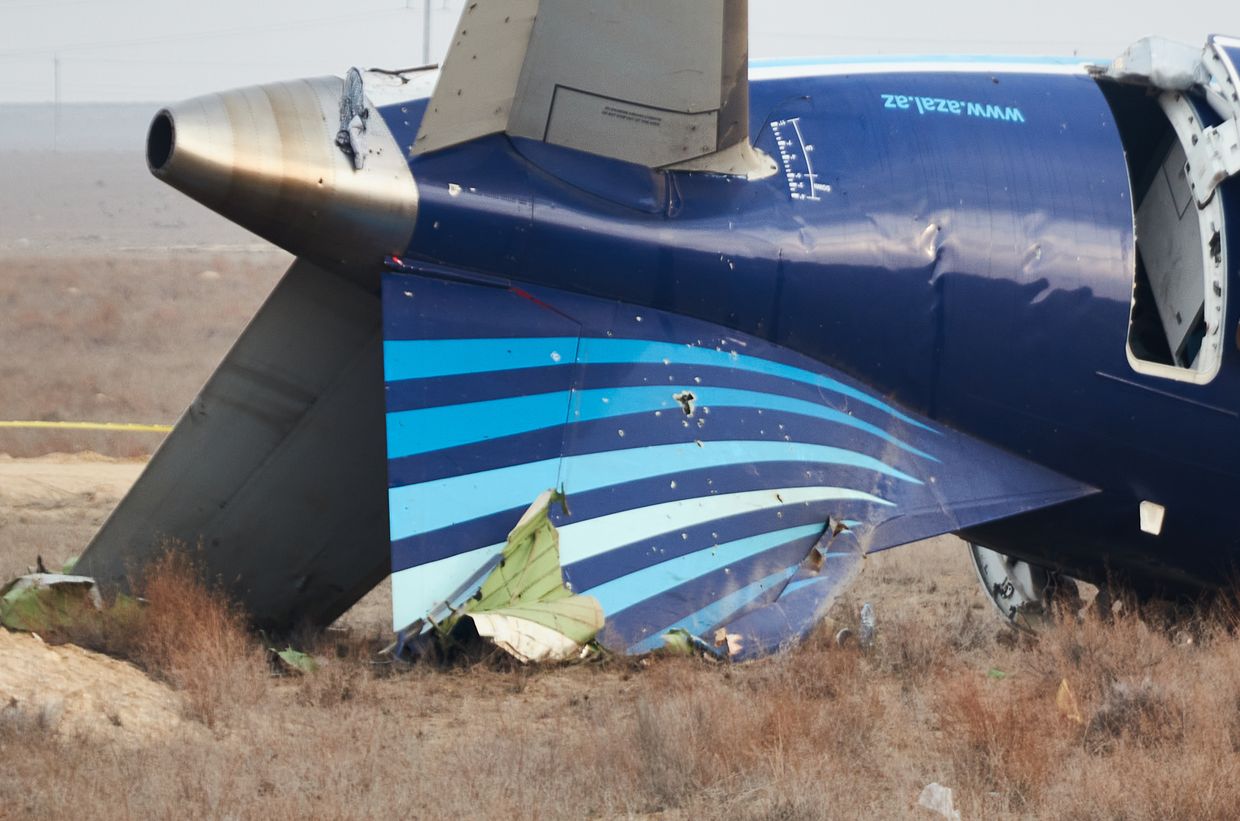

Another Russian crash
The Azerbaijan Airlines plane, which was carrying passengers from Baku, Azerbaijan, to Grozny in Russia's Chechen Republic, crashed on Dec. 25 near the coastal city of Aktau in Kazakhstan.
There were 67 people on board the aircraft, including 42 Azerbaijani citizens, 16 Russians, six Kazakhs, and three Kyrgyz citizens. Thirty-eight people died as a result of the crash.
The crash was caused by a Russian surface-to-air missile, Reuters, Euronews and the Azeri media outlets Caliber.az and AnewZ reported, citing Azerbaijan's government sources. The reported use of air defense systems aligns with multiple media reports of air defense working in the region on the morning of Dec. 25.
Russian President Vladimir Putin apologized for the crash to his Azerbaijani counterpart Ilham Aliyev on Dec. 28. Putin confirmed that the plane had tried to land in Grozny but the city was being attacked by Ukrainian drones, and Russian air defense was shooting them down.


Meanwhile, Russia's Investigative Committee has opened a criminal case into alleged violations of air safety rules.
Azerbaijan Airlines said on Dec. 27 that the preliminary results of an Azeri investigation showed that the plane had suffered "physical and technical external interference." Aliyev repeated this version in his Dec. 28 conversation with Putin.
According to Azerbaijani government sources, the missile was fired from a Russian Pantsir-S air defense system.
Russian airports reportedly denied the plane permission for an emergency landing, forcing the pilots to divert toward Aktau in Kazakhstan, located over 500 kilometers east on the opposite coast of the Caspian Sea.
It is currently unknown why the plane was denied the right to land and diverted to an airport located hundreds of kilometers east. Some allege that Russian traffic control deliberately diverted the plane toward the sea, where a safe landing would be an extremely difficult task.
Russia’s state aviation agency, Rosaviatsia, said the plane was diverted to Aktau after a collision with a flock of birds.
Following the accident, Azerbaijan Airlines, Kazakhstan's Qazaq Air, and Israel's El Al suspended their flights to Russia.
Following the accident, Azerbaijan Airlines, Kazakhstan's Qazaq Air, and Israel's El Al suspended their flights to Russia.
If confirmed, it would not be the first time Russia downed a passenger plane during its war against Ukraine.
On July 17, 2014, Malaysia Airlines Flight 17 was shot down by Russian forces in Ukraine's Donetsk Oblast, with all 298 people on board being killed.
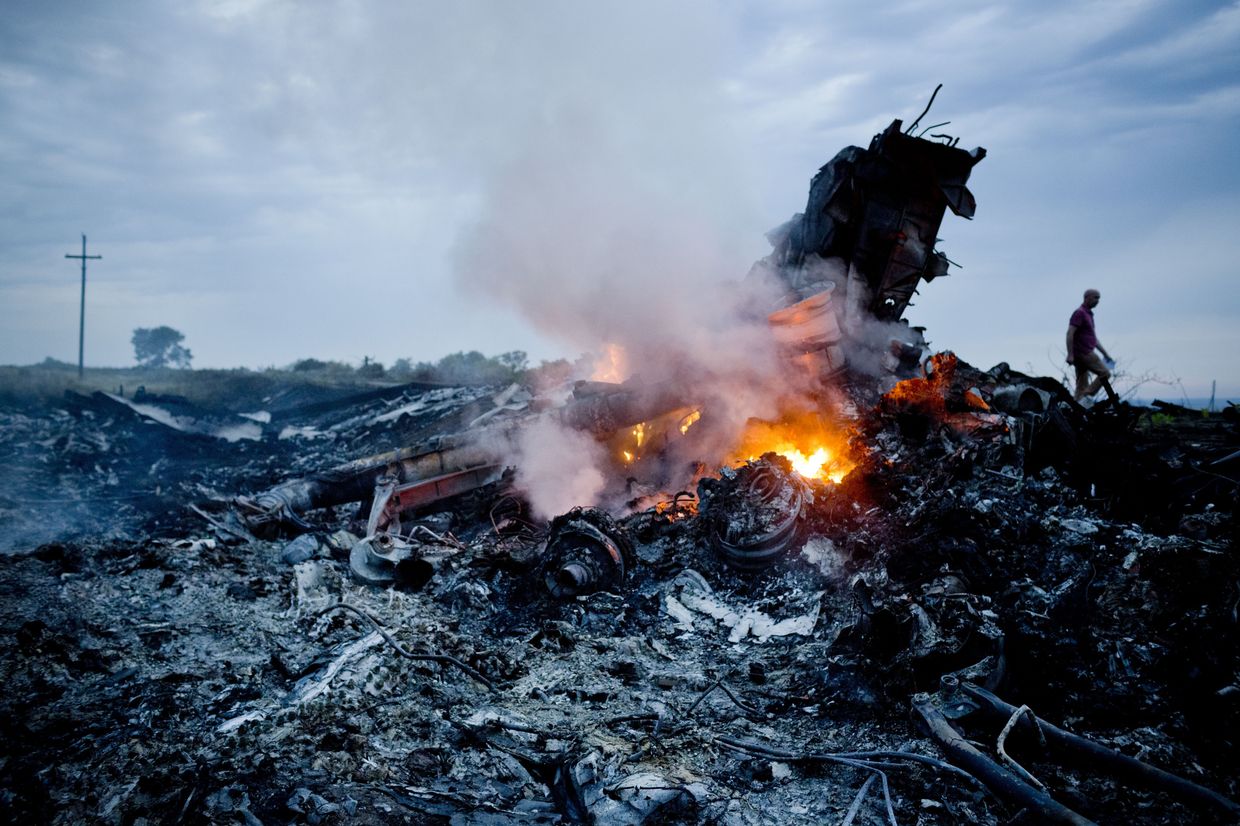

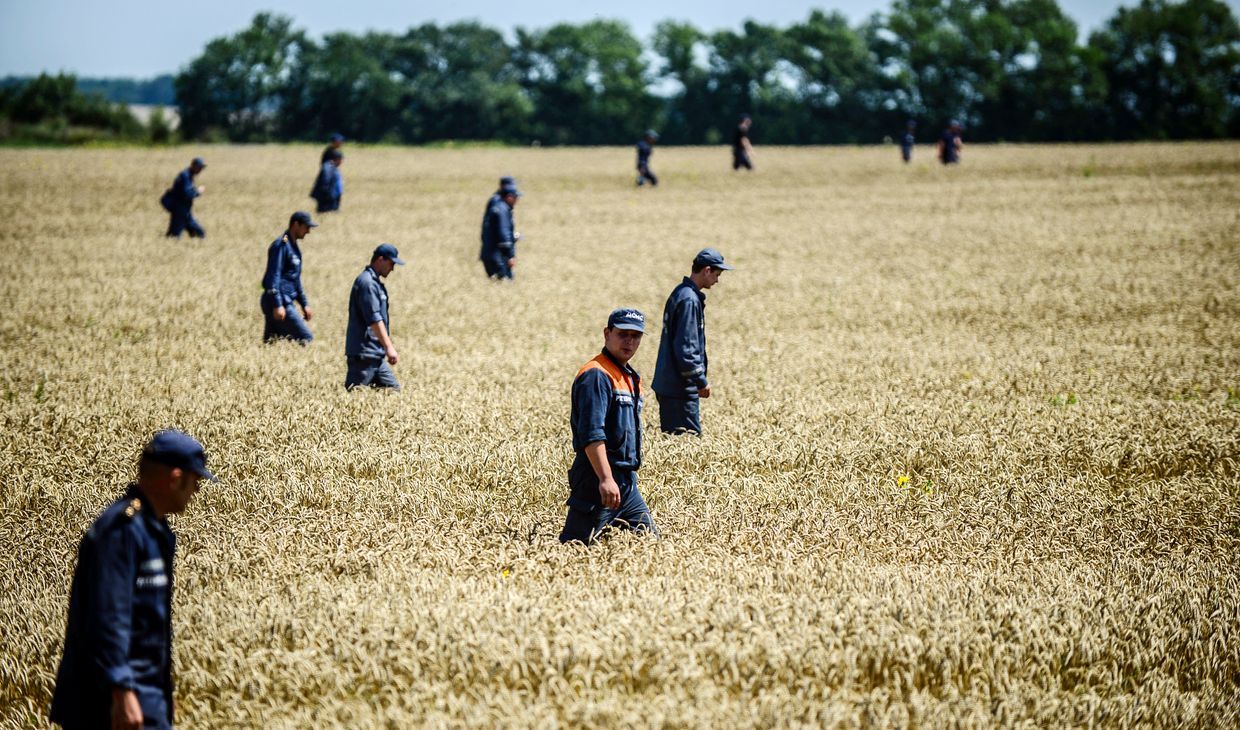

Russian-controlled forces first celebrated the downing, yet later backtracked and deleted their statements when it was revealed that the plane was civilian.
Russia continued to blame Ukraine, spreading fake narratives about Ukraine's air defense and the country's fighter jets being responsible for the downing.
In one instance, Russian propaganda introduced a "Spanish air traffic controller Carlos," who was described by Russian propaganda as seeing from "Kyiv's control tower" that the plane was downed by Ukrainian jets.
A Dutch court has established that the plane was downed by a Russian Buk surface-to-air missile. Two Russians and one Ukrainian proxy working for Russia were convicted for the murder in absentia in 2022.


Unsafe travels
The plane crash highlights a long-running problem.
"The airspace is now contested; that is, the Russian air defense system is shooting at Ukrainian missiles and drones flying across large parts of western Russia," Peter Layton, an aviation expert at the Royal United Services Institute, told the Kyiv Independent. "This situation will worsen and become even more confusing as Ukraine steps up the scale of the attacks and the variety of the missiles it is using. The result is a more dangerous airspace for civilian aircraft to operate in."
Layton added that Russia is also "jamming global positioning (GPS) systems used by civil airliners for navigation."
"This jamming is to thwart attacking Ukrainian missiles and drones," he said. "There are manual procedures to work around this deliberate interference, but it adds to the difficulties and dangers of civilian aircraft operating in Russian airspace."
Michael Harwood, another air power expert at the Royal United Services Institute, agreed, saying that "for as long as the sovereign nation of Ukraine is attacked and occupied by forces directed by the Kremlin, nothing is safe in Russia."
Erik Stijnman, a military expert at the Netherlands Institute of International Relations (Clingendael), also argued that "without any doubt, an ever more contested airspace through the use of unmanned aerial systems and missiles will lead to more accidents."
"The chance of human error will increase when air defenders are asked in a time-constrained environment to decide on target selection and firing approval," he told the Kyiv Independent. "What does not help is that tactics designed to saturate the air defense systems intend to confuse systems and operators in order to influence the air defenders' friend or foe identification process. More saturation means more decisions. More decisions means more mistakes."
Stefan Wolff, professor of international security at the University of Birmingham, argued that "the question is what Russia will be able to do to improve its defenses and whether Ukraine will be able to keep up sufficient levels of production and innovation to stay ahead of Russia."
According to international aviation customs, it's up to Russia to issue a NOTAM (Notice to Airmen) and close its own airspace.
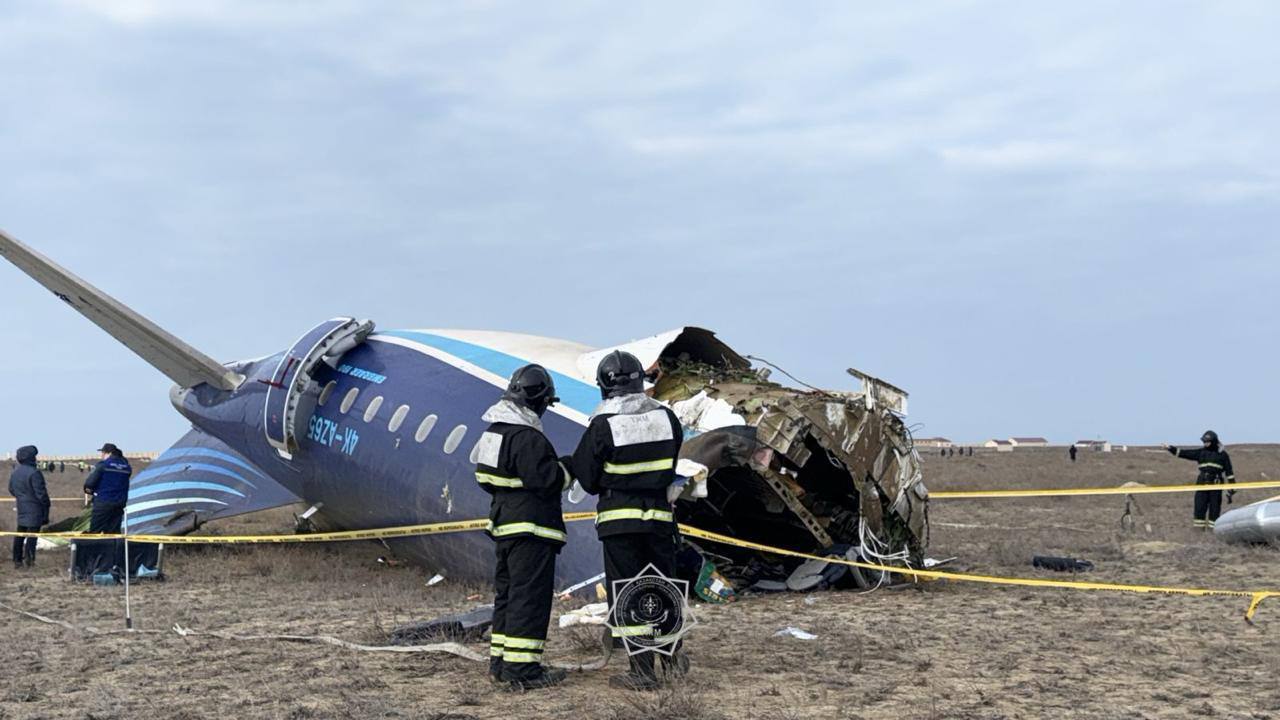


Closing airspace
Despite the danger posed by drone attacks and air defense, Russia has been reluctant to close its airspace, except for regions bordering Ukraine.
Wolff and Hoffman said that regular Ukrainian drone attacks would be valid reasons for closing Russia's airspace.
Hoffman added, however, that "the Russian regime, of course, has a great incentive to keep its airspace relatively open in order to signal a sense of normalcy and control to the Russian public and international audiences."
Stijnman also said that "these developments increase the chance that restrictions may be deemed necessary in Russia."
"Ultimately, it is a decision based on a cost-benefit analysis by individual airlines and/or the Kremlin," he said. "What are the (perceived) economic and societal costs of airspace restrictions versus the current state of affairs?"
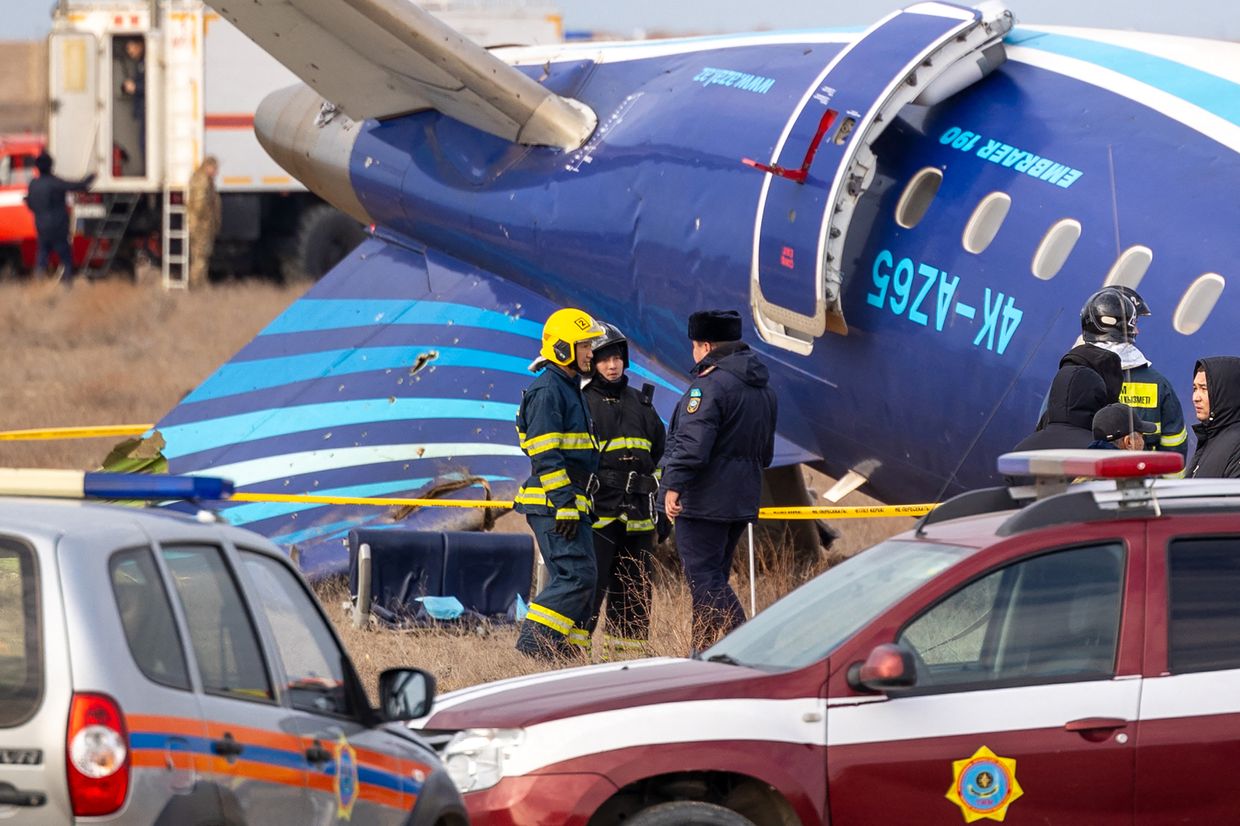

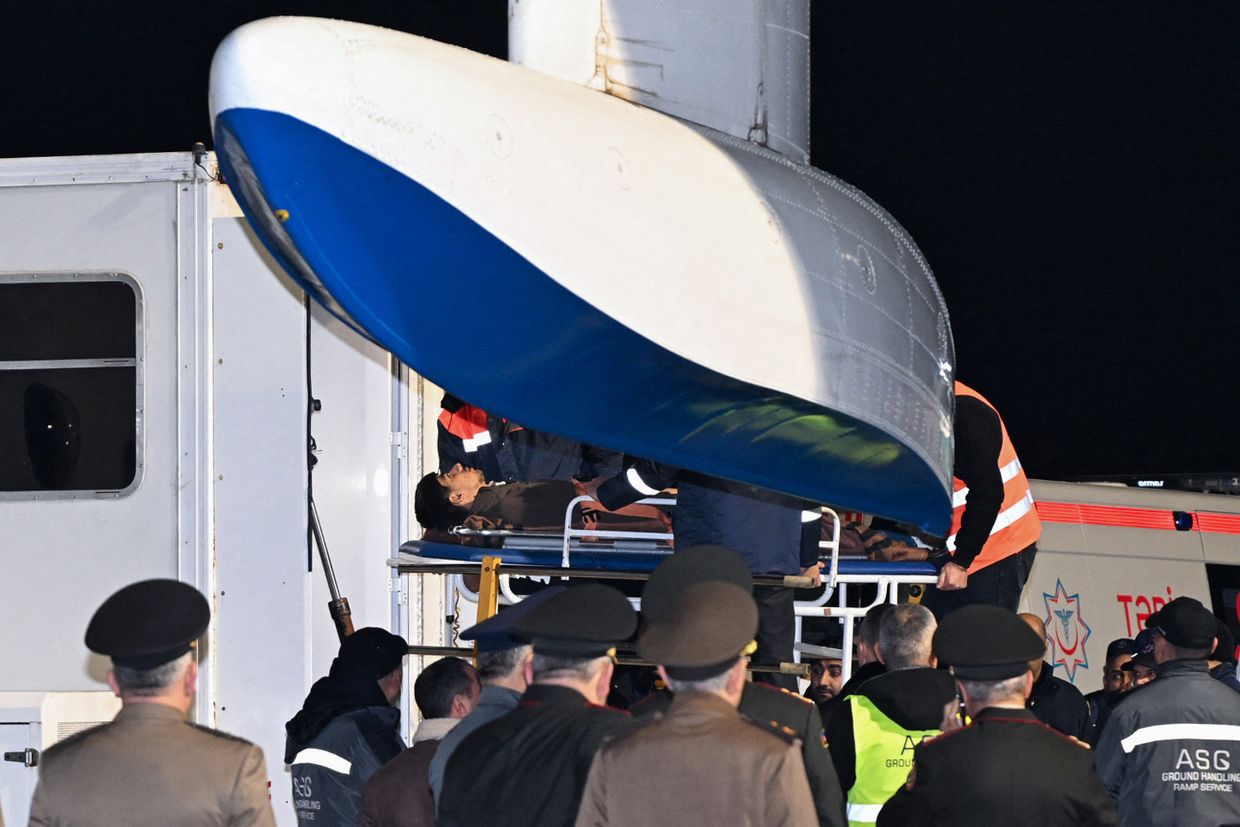

Meanwhile, Layton argued that "Russia's large size makes air transport a very important means of travel."
"Combining that with the desire of the Russian government for civilian air operations to continue as normal, it is unlikely that parts of Russian airspace will be permanently closed," he added.
"On the other hand, short duration closures due to Ukrainian missile and drone attacks and Russian air defense responses may become increasingly common in airspace in western Russia and within, say, 750 kilometers of Ukraine."
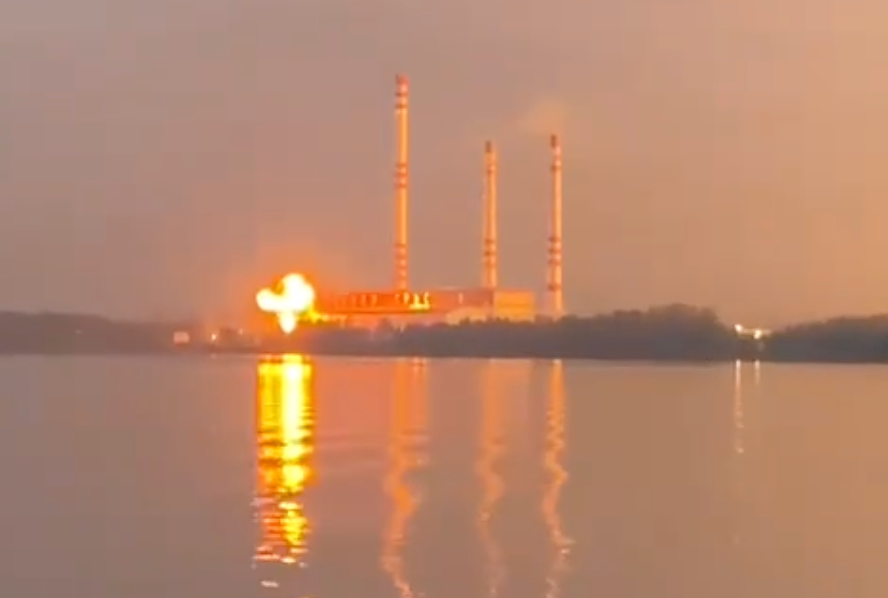

Tensions with Azerbaijan
Apart from shining a spotlight on air safety, the Dec. 25 crash may also create problems for Russia's relations with Azerbaijan, from which the plane flew, and Kazakhstan, where it ended up crashing.
"Azerbaijan is asserting itself and has serious ambitions," Vadim Dubnov, a Caucasus expert at the Carnegie Endowment for International Peace, told the Kyiv Independent. "A state with such ambitions, as a regional leader, cannot afford to let such things (as the plane crash) slide."
Dubnov also said that "Azerbaijan leads the shortlist of countries that have learned to convert neutrality into benefits."
"Azerbaijan leads the shortlist of countries that have learned to convert neutrality into benefits."
"It doesn't condemn Russia but maintains a certain level of decorum toward Ukraine," he added. "Azerbaijan is using Russia and the current situation to strengthen itself and realize its own ambitions. The war helps it greatly, and Azerbaijan is exploiting it to the fullest."
Dubnov said that during negotiations with Russia, Azerbaijan would likely recall that Baku apologized to Moscow after shooting down a Russian helicopter by mistake during the 2020 war in Nagorno-Karabakh, a former Armenian-backed entity on Azeri territory.
He also argued that "for Russia, the situation is much more complicated" since it is unlikely to directly admit that its air defense was responsible for the crash.
"(Russia) needs to acknowledge many things that it has never recognized before, which will also evoke numerous allusions, including comparisons to the Malaysian Boeing incident," he said. "At the same time, it cannot afford to ruin relations with Azerbaijan, nor can it completely ignore Azerbaijan's demands."
Dubnov said, however, that Russia and Azerbaijan would likely do their best to prevent their relations from deteriorating.
"Russia and Azerbaijan, as states that are quite similar in the style and aesthetics of their governance, understand each other's situations and difficulties," he said. "They have time to find a formula that will satisfy both sides. However, it will be very difficult, especially for Russia."









